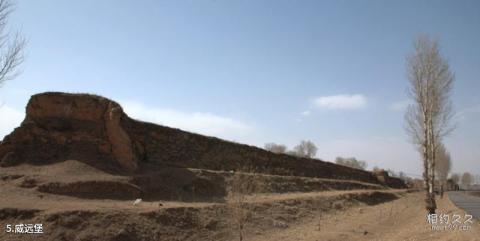
Introduction to Weiyuan Fort: Weiyuan Fort was built in the third year of Zhengtong in the Ming Dynasty (1438). It was built with guards and troops stationed to protect the border. During the Ming and Qing Dynasties, there were many buildings inside and outside Weiyuan Fort (city), including the Weiyuan Guards Station, the General's Office, the Inspection Department Office, the Chinese Military Office, the General Office, the Garrison Office, as well as the Minglun Hall of the Confucian Temple, There are more than 50 sacred hangars, granaries, pastures, prisons and various temples. Outside the fort (city) there are the Sheji Altar, Li Altar, Fengyun and Thunder Rain Altar and the Leaky Rain Garden, which is dedicated to the adoption of orphans and elderly people.
Weiyuan Fort is the birthplace of Youyu culture. In the second year of Zhengtong in the Ming Dynasty (1437), Li Li, the deputy envoy of the Guangxi Ancha Division, was demoted to the Weiyuanwei area (today's Jinshiwan Village). After that, from the fifth to the eighth year of Zhengtong, From the eighth to the ninth year of Chenghua, a large number of well-educated Confucian scholars Wu Fang, Li Zuoxiu, Huang Zan, Xia Yu, Yangzhan, Wang Zhang, Bao Dehuai, Pan Hong, Wang Bin, Lu Ji, Shang Mian, and Chen Yan were demoted one after another. At this point, the Weiyuan Guard General at that time did not let them guard the border, but appointed them as professors of Weiyuan Guards. Because so many Jinshi came to teach, Weiyuan Health School became more famous, surpassing Youyu Health School. Nearby soldiers, wealthy people, and ordinary people all sent their children to study. In the end, even the children of Datong Prefecture also came to study.
